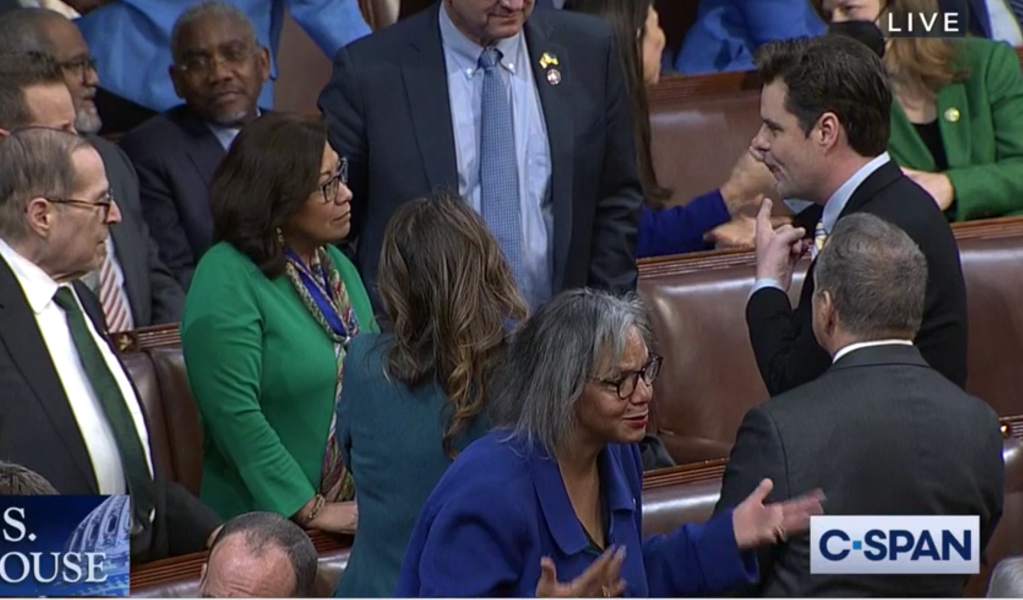
The House Republicans’ conundrum won’t end with the selection of a speaker, whether Kevin McCarthy or someone else. Their problem is fundamental to their narrow majority, and its origin dates back more than 30 years.
I became a professional congressional observer in 1986. Weeks into starting as a reporter in the Capitol, in 1989, I sat in the press gallery as the ceiling lights intensified above Speaker Jim Wright, who rose in the well to defend himself over ethics missteps that today would seem quaint. Charges centered around possibly improper gifts Wright had received from a Fort Worth developer and profits from a vanity book of speeches that allegedly were sold in bulk in lieu of speaking fees, which the House had recently banned. Democrats held a 73-seat margin, but they forced Wright out.
Backbencher Newt Gingrich, elevated two months before to party whip, had instigated Wright’s downfall. His theatrics during “special orders,” when any member could get on C-SPAN after the day’s floor business, had drawn the condemnation of Wright’s predecessor, Tip O’Neill—and built his profile. Sixteen months after Wright resigned, Gingrich led a revolt against a budget deal negotiated by George H.W. Bush’s aides with the bipartisan, bicameral leadership, which had joined hands to raise taxes, cut expenditures and impose fiscal discipline. Gingrich’s fringe revolt forced the leadership to go left for liberal votes in reaching a second compromise, which Bush signed. The House GOP’s mutiny contributed to Bush’s loss to Bill Clinton in 1992.
After GOP leader Bob Michael announced his retirement in 1994, Gingrich became heir apparent and succeeded to the speaker’s chair in 1995, when Republicans took both chambers for the first time since the Eisenhower administration. His style—all opponents were corrupt—set the tone for the next two years, and his hubris led to government shutdowns that helped doom Bob Dole’s 1996 challenge to Clinton. (Voters have consistently blamed Republicans for shutdowns, but Donald Trump embraced the tactic, becoming the first president to close the government over spending battles.)
Gingrich, whom his caucus overthrew after the Clinton impeachment boomeranged against the GOP in the 1998 elections, was succeeded by Dennis Hastert, who enshrined a practice that on major issues, no bill would go to the House floor without majority Republican support. Compromise with the minority was out.
The next stage in where we are now was the 2003 redistricting of the Texas delegation engineered by Tom DeLay. The House Republican whip got the GOP five more seats mid-decade (and in the process was convicted of laundering corporate campaign contributions, a conviction overturned on appeal). That presaged the gerrymandering roadmap that followed 2010 state legislative elections, in which the GOP turned what had been an art into a science.
After the Supreme Court opined in 2019 that it had no role in defending democratic representation from the legislative partisans who drew district lines to maximize majority-party advantage, the Republican Party arrived at the logical conclusion. It cannot expect to increase its majority beyond what we see today: four seats, thanks to extreme gerrymandering in Texas, Florida, Ohio and Wisconsin (offset to a tiny proportion by Democrats in Illinois).
Thus we have a House of Representatives that is broadly reflective of the electorate—Republicans won a slim majority of votes in November nationwide—but many districts are represented by extremists who cannot compromise, because compromise would cost them in their primary contests.
In his floor speech defending himself, Jim Wright accused his colleagues of “mindless cannibalism,” a note of self-pity following a unanimous ethics committee report on his malfeasance. Three decades later, Republicans have dethroned three of their own speakers (Gingrich, John Boehner, Paul Ryan) and balked at handing the mace to a fourth.
But when this act is over, the anti-McCarthy faction will find it hard to impose its will. Some members demand a return to “regular order,” allowing amendments to bills on the floor. The faction complains about gargantuan spending bills, which leaders assemble because separate bills addressing sets of government agencies can’t get the votes to pass. For example, a top item for the radicals: retracting the hiring, authorized in 2022, of tens of thousands of IRS agents to audit the rich—and answer taxpayer calls. But most Americans want someone to pick up the phone when they call their government.
The solution, since the Supreme Court is unmoved, is for the parties to recognize that gerrymandering destroys effective government. Voters and courts in California, Arizona, Michigan, Ohio, New York, Virginia and elsewhere have agreed. But because the GOP base believes that effective government is an enemy as much as the other party, I’m not holding my breath.

Thanks for this historical review, Bennett. I expect “effective government” will be absent for the next two years, at least, now that the “insurrectionists” have taken over. Maybe the pain that they promise to inflict on ordinary Americans by government shut downs and budget cuts will be great enough to lose them votes in 2024. Hope springs eternal!
Elsa
>
LikeLike